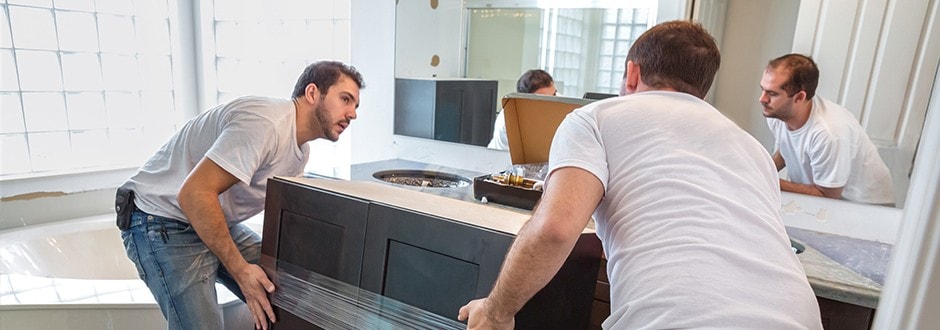Last updated: June 09, 2025
When is mortgage insurance required?

When purchasing a new home, there may be a series of insurance requirements and options for you to consider. Including insurance costs in your budget can help you plan your financial future.
Insurance rates can vary based on your home’s value and location. Depending on the amount of your down payment and the region you live in, you may be required to take out a mortgage insurance protection policy or flood insurance.
Mortgage insurance requirements
There are several types of mortgage insurance and you should understand how each one works.
Private mortgage insurance
Your mortgage lender may require private mortgage insurance (PMI), which guarantees they get paid if you default on your loan. This type of mortgage insurance is often mandatory if you’re unable to put at least 20% down on a new home. Lenders arrange PMI on behalf of private insurance companies.
PMI may allow you to get a home without making a large down payment. However, it’s an additional cost that could affect your monthly budget.
At closing, you might have the option to pay your first year’s PMI premium upfront.
Costs for PMI may depend on the amount of your down payment and your credit score. The lower your credit score and down payment, the higher your insurance premium might be. PMI fees will appear on your Closing Disclosure form.
You’ll also want to consider PMI costs if you’re thinking about a cash out refinance.
To avoid paying PMI, your lender or realtor might suggest you put at least 20% down when buying your home. In some cases, you can request to cancel your PMI policy once you have at least 20% equity in your home.
Depending on your down payment amount, some types of loans, such as FHA loans require ongoing payment of mortgage insurance even if you reach 20% equity.
Learn More: What is a loan-to-value ratio and how is it calculated?
Life insurance to pay off your mortgage
Mortgage lenders sometimes sell mortgage life insurance, which pays off your loan in the event of your death. However, check these rates carefully, as they may not be as competitive as policies from other companies.
Check with a professional life insurance consultant to find out more.
Homeowners insurance and your liability needs
Another type of coverage when buying a home is homeowners insurance. Many lenders will require you to have this before they approve your mortgage. If you’ve been renting, think of homeowners insurance as a more comprehensive renter’s insurance policy.
For adequate protection, your homeowners insurance should cover the full cost of rebuilding your home if it’s damaged or destroyed, as well as replacing the possessions in your home.
The typical homeowner’s insurance policy covers:
- Your home and its foundation
- Possessions in your home
- Additional structures on your property, such as sheds and detached garages
Be sure to get a homeowners policy that includes liability coverage. This may protect you against financial ruin if someone is hurt on your property and sues you. Liability coverage might also cover the cost of medical payments for someone injured on your property.
Homeowners insurance policies do not generally cover damage caused by flooding.
Flood and disaster protection
Flood insurance is almost always separate from your homeowners policy, especially in areas prone to flooding. Your lender may require flood insurance for homes in government designated flood zones, but you might want to invest in this protection even if it’s not mandatory.
Other natural disasters may not be covered by standard homeowners policies, including:
- Earthquakes
- Mudslides
- Water damage from storm surges
- Federal programs and private insurance services may be available to provide protection against these events.
Some disasters, such as hurricanes and hail, must be specifically listed as a “Named Peril” by an insurance provider to be covered.
Home warranty planning
You may need extra assistance when paying for property repairs. Purchasing a home warranty when buying your house could or may provide peace of mind. Home warranties typically last one year and apply to plumbing, heating and air conditioning, wiring and major appliances.
If a pipe breaks in your home, homeowners insurance may cover the damage caused by the pipe and the leaking but not the cost of fixing the pipe itself. In situations like this, a home warranty plan might cover the remaining repair costs.
Insurance is something you need to consider when planning your home ownership budget. Work with your lender to estimate insurance costs when you purchase a home.
Please note: Discover® Home Loans offers home equity loans and mortgage refinance opportunities, but does not offer purchase mortgages.
- Main
-
The information provided herein is for informational purposes only and is not intended to be construed as professional advice. Nothing contained in this article shall give rise to, or be construed to give rise to, any obligation or liability whatsoever on the part of Capital One N.A., its affiliates, or successors.

Tap into your equity today
Get the funds you need for home improvements, debt consolidation, or life's next big adventure.
Discover Home Loans Restrictions and Details
We do not lend in IA or MD. You are not guaranteed approval. Once you apply and submit your credit and property information, we will confirm your eligibility. We don’t lend on cooperatives, condotels, investment properties, log homes, manufactured homes, mobile homes, or secondary homes. We will only originate one 1st lien mortgage per property per 12-month period. The maximum loan amount you qualify for will depend on additional factors, including type of loan, lien position, loan-to-value and your credit history. We may change rates, program terms, and conditions without notice. Discover Card accounts and other Capital One accounts (with the exception of Discover home and personal loans) may not be paid off with this home loan. All loan programs are offered by Capital One, N.A., 2500 Lake Cook Road, Riverwoods, IL 60015. NMLS ID 453156.
Loan Payment Example Disclosure
For example, if you borrowed $60,000 for a 20 year term at 8.86% APR, your fixed monthly payments would be $534.45.
